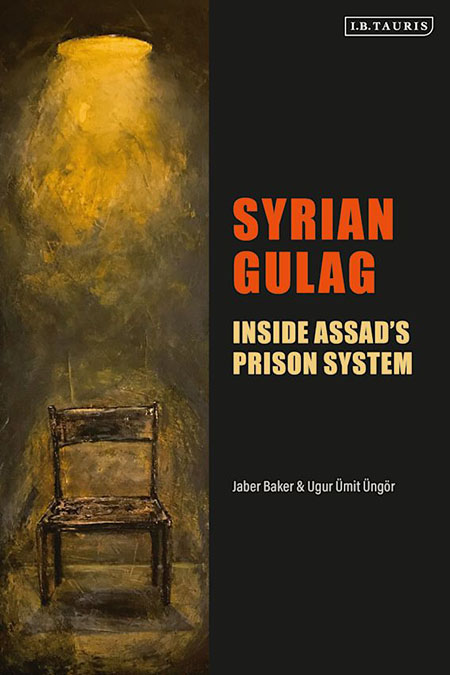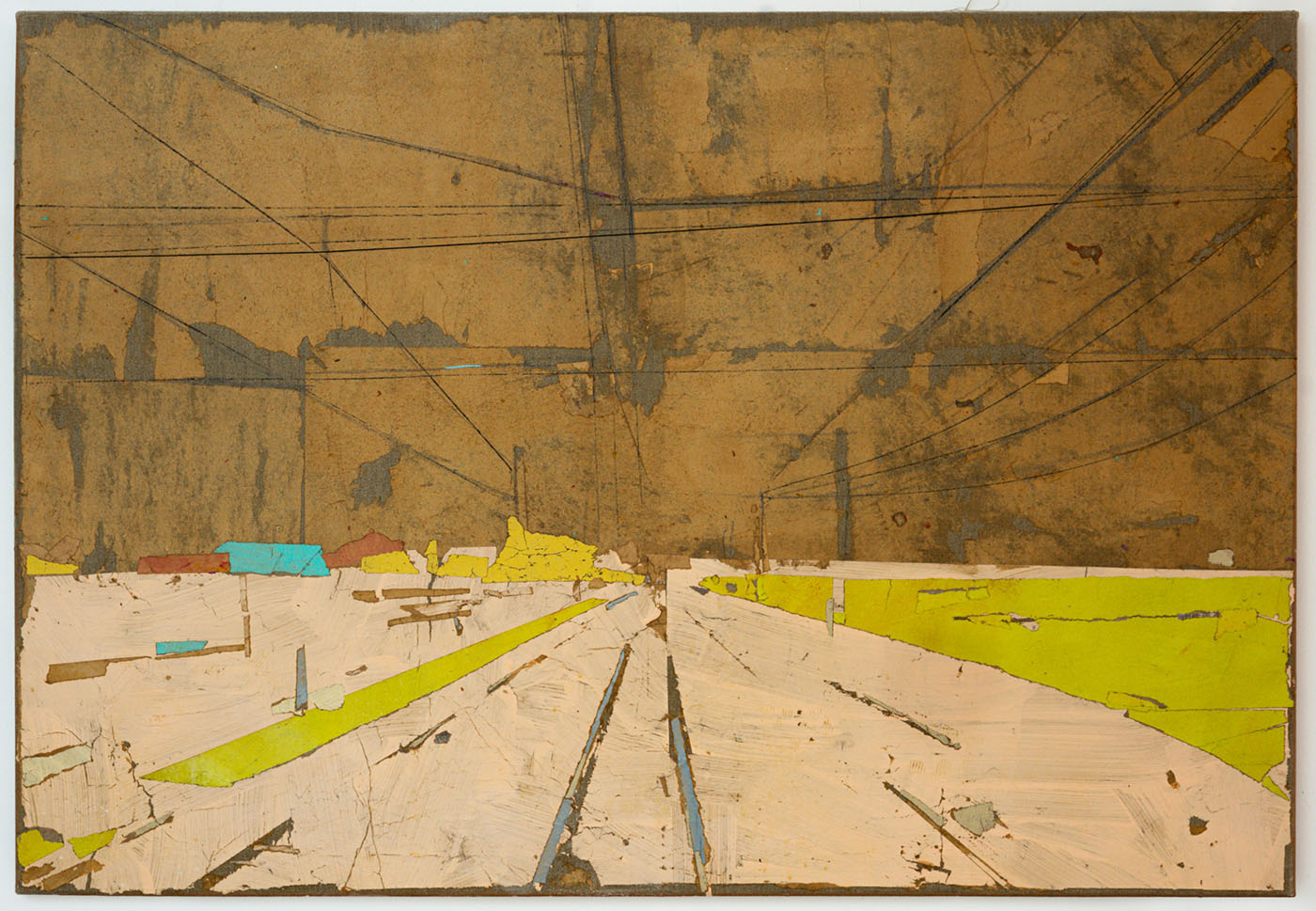Based on interviews with both the victims and perpetrators, survivors’ memoirs, books, and notes, alongside leaked regime archives, photos, and intelligence files, Syrian Gulag: Inside Assad’s Prison System by Jaber Baker and Uğur Ümit Üngör (I.B. Tauris/Bloomsbury, 2023) took five years to write and research. The book’s extensive interviews with 150 Syrian detainees were only made possible because many detainees had fled their country, with hundreds of thousands of others, after the Syrian war and revolution. This is an exclusive excerpt.
Jaber Baker and Uğur Ümit Üngör
Poem in Morse Code
In April 1987, a poem was written on the wall of a cell in the Palestine Division prison. Syrian poet Faraj Bayrakdar passed it on to his colleague Akram al-Bunni in the adjoining cell, using the Morse language the prisoners had developed amongst themselves. A whole language with its own origins, complexities and methods, and al-Bunni and Bayrakdar were well versed in it. Bayraqdar tapped on the cell wall that separated him from his colleague al-Bunni, eleven ticks associated with the letter “qaaf” ( ق ) in Arabic. Then he continued tapping, “Once upon a time … ‘Zaman bin Zaman’ told me. The fire is proof.” Bayrakdar went on to recount the poem that he had written in his head after years of hiatus in poetry. Bayrakdar ended the recitation of his long poem by tapping on the wall. Al-Bunni quickly expressed his admiration, but the poet replied with coldness, “Don’t compliment me and give me your real opinion.” Al-Bunni recited the same poem to him by tapping on the wall to assure him of his admiration. However, he made a mistake with one letter and Bayrakdar corrected the mistake by tapping. And they laughed for a long time, wiping the blood of torment from their faces, while Bayrakdar concluded his poem, the title of which was “A Story”:
Master Despair
Inform your master the Sultan
The cell is not narrower than his grave
The cell is not shorter than his age.
— [From an interview with Faraj Bayrakdar]

First Person Accounts from Inside Tadmur
The 1980 Palmyra or Tadmur prison massacre was one of the biggest single-day massacres in Syrian and modern Middle Eastern history.
26 Survivors — They opened the door of our dormitory on the morning of Friday 27 June 1980 for the roll call. We were 26 detainees in the dormitory and all of us were accused of belonging to the Iraqi Baath, the ‘suspicious right’, as it was referred to in the intelligence circles … The Defense Brigade officer asked us: “Are you all from the suspicious right?” We confirmed. They went out and locked the door without saying a word … we were consumed by fear, but no one was able to ask or inquire. At 9:00 sharp they threw grenades into the fifth and sixth dormitories, which were packed with detainees. Bombs were thrown from the open window by the roof, the vent. Detainees started shouting “Allahu Akbar.” The soldiers slammed open the doors of the dormitories, except for ours, and opened heavy fire on everyone. The voices of the detainees slowly faded under the wheezing of bullets and cries of death. We lined the walls of our dormitory with our backs to the dormitory door. One of our colleagues suggested moving to an area closer to the door, for death there would be faster and less painful. We fought to stand there, each wanting to be the first to die. We asked each other for forgiveness awaiting the bullets to harvest us. On the other side of the door of our dormitory, stood a sergeant who kept opening the … window, looked at us, and then closed it. The shooting lasted three hours, until midday. After that, we sat down … in complete stillness, waiting for what might happen next … Blood leaked out from under the doors of the rest of the dormitories. We had no water, food, or light due to the power outage, until the evening. The prison administration extended an electricity cable with a lamp at its end to illuminate the third courtyard over which our dormitory overlooked. We peeked onto the yard where one of the wardens … they placed each body onto a cover in front of [the warder] Abu Jahl. Abu Jahl then inserted a thin iron skewer into the corpse to make sure it was dead. They discovered some who were still alive among the bodies. They were shot dead. Those transfers continued all night.
[Interview with Khaled al-Aqleh]
Dirty Food
The food came three times a day. With it came the torturers who competed in their creativity to humiliate us. One would put his military boots, full of dirt and animal waste, in our food bowls, before opening the door to bring them in, especially when the food is liquid … We brought the food in under their kicks and whips as they laughed hysterically. If his boots were clean and he was in a hurry, he would grab a hand full of sand from the courtyard which over the days mixed with our blood and threw it over rice or bulgur. It happened more than once that one of them urinated over the food amid hysterical laughs from his colleagues. These actions reached the Prison Director who recorded them as positive points …
[Mohammed Berro, Interview and Naj min al-Maqsala. Thamaniya Awa’im fi Sijn Tadmor (Beirut, Jusoor, 2020)]
“It’s Water, Sir!”
Yes, in this mini hell, we had glimpses of hope and love for life, but they were bitter and short lived. Those moments soon faded away by the torture rounds. The most deadly and ferocious of which were those supervised by the Discipline Adjutant personally. He would enter our yard at breathing times waddling like a prince, with a cigarette dangling from the tip of his lip, and a metal rod with a pointed head in his hand. If he wanted to talk to a prisoner, he would just stick the rod into his body, and ask the prisoner next to him to take it out. Blood poured out and the stabbed inmate was dragged back to the dormitory. Then the Adjutant would ask: “What is this?!” pointing to the blood. The prisoner should answer: “It’s water, Sir!” The Adjutant would reply: “Well done. Drink it then.” As soon as the poor man kneeled down to obey the order, he received the same fate and followed his predecessor. At the end of the “breathing” session, someone else would come and ask the head of the dormitory: “How many injuries do you have?” The head of the dormitory would answer: “Twenty, Sergeant!” The latter would reply: “Only 20 …?!”
[Interview with Abbas who spent 15 years in Palmyra and Sednaya prisons.]
Palmyra’s “Academy”
We went through many events during which our needs and priorities were evolving. It was about each of us making what made him feel his individual and collective presence. We exchanged our experiences and knowledge. We conversed a lot. We reviewed our political experiences at every stop. We put forward our critical opinions about those experiences. We ran oral courses in presentation, poetry, languages, economics, and engineering. We learned how to improve food and behavior. We created means of entertainment: theater, pantomime, charades of folk proverbs, chess games … barjis (a traditional board game). We nicknamed each other: “the one who carries the ladder crosswise, the thread head, the storyteller, the dreamer.” We shared the specialties: embroideries, darning and sewing, nylon threads, primitive ink which was a strange chemical mixture made of onion and pomegranate husks, tea residues and anti-inflammatory pill capsules which we melted under the light bulb that hung from the ceiling . . . Towards the end of the late twentieth century, we lived the primitive ages of the human being. In the era of nylon, which came with the arrival of bread into the dormitories in nylon bags, we discovered the way to spin threads thanks to those who preceded us to the place and … left this information on the wall. We used them, as they did, in making kitchen shelves, laundry cords, sandals, mini rugs and mesh bags which our wives will use for shopping years later … During the cartoon era, we made tablecloths, tables from cardboard dough, notebook covers made from wastepaper and cigarette box covers that we kept, playing cards and paintings for drawing … Sometimes the same human experience is repeated. The difference is the accumulation of experiences, efficiency, and coincidences. Our ancestors in the Palmyra prison performed simple and medium surgical operations with tools made out of bone and wood as well as metal chips from ointment tubes and steel strips they cut out from the bottom of the corroded iron door. They polished them with rubbing … they used vinegar and salt for sterilization. They ate bone powder and eggshells to compensate for the lack of calcium. They made water tanks from nylon bags and adhesive to survive the near absence of running water. They bathed using five liters of water. They used magic boards to write. Many of them memorized the Qur’an by recitation from others … they communicated with Morse signals through the walls.
[Abbas, Tawaqqan ila-alHaya (Beirut: Dar al-Khayal, 2015)]




